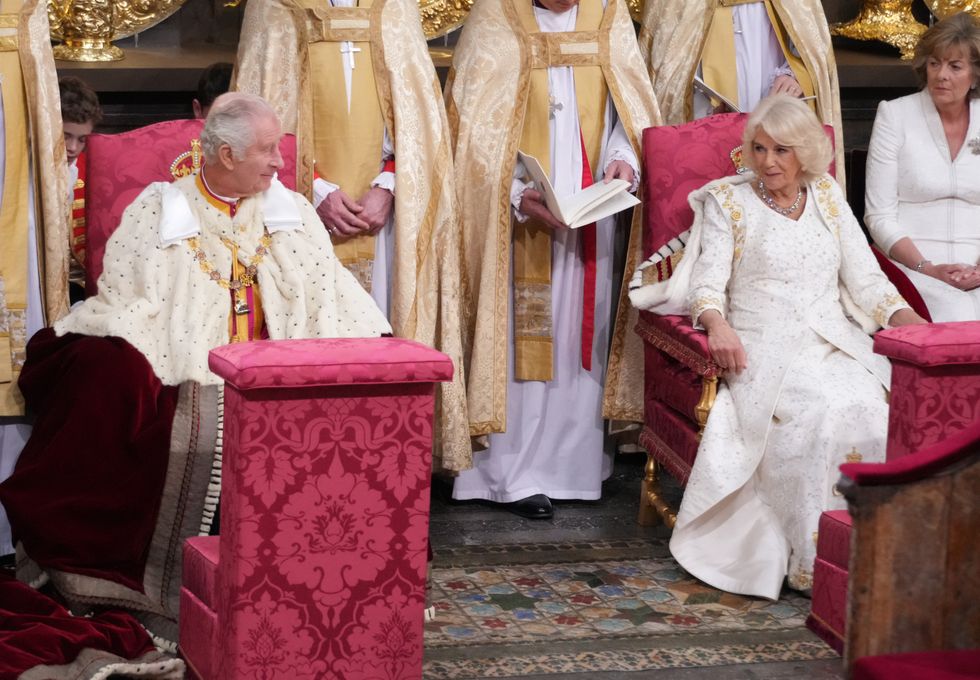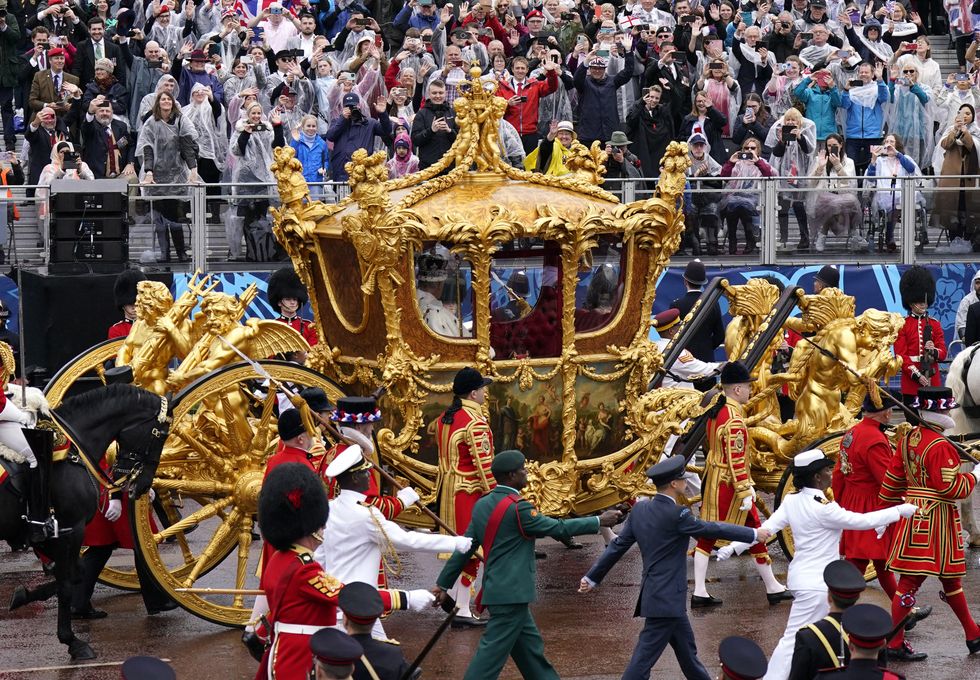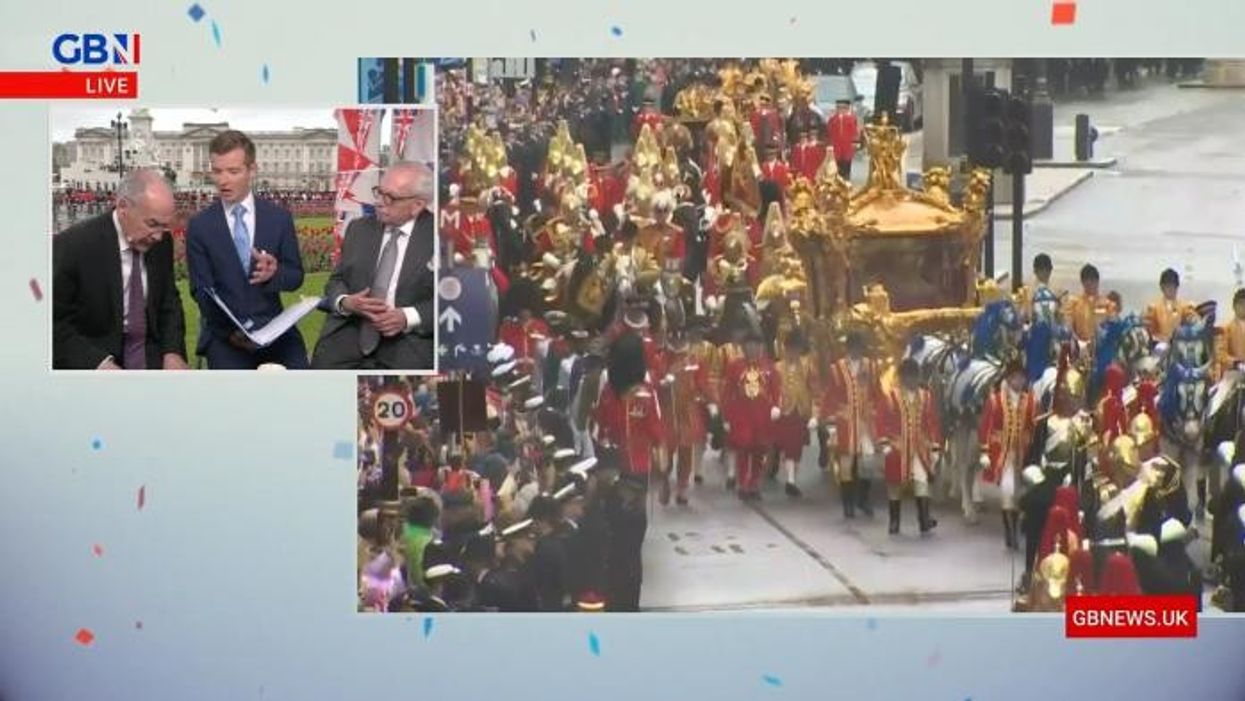A key part of the ceremony at Westminster Abbey came under scrutiny
Don't Miss
Most Read
Trending on GB News
The invitation to pledge allegiance to King Charles III was one of the “few conspicuously misjudged” moments from the Coronation, according to a royal historian.
The plot has come under fierce criticism since it was announced the Archbishop of Canterbury would “invite” those who wish to express support for the monarch to do so during the ceremony.
The act itself was not met with a “roar”, according to royal historian Dr David Starkey, who says the muted reaction exposes a sign of poor judgment from the monarchy.
Speaking on GB News, Starkey told royal correspondent Cameron Walker that King Charles did not receive the adulation he would have wanted during the act.

King Charles and Camilla were Coronated at Westminster Abbey
PA
He said: “There was hardly a roar. This was one of the few conspicuously misjudged things [from the Coronation].
“In England, ordinary people don’t do pledges of allegiance. The old aristocracy would have been totally happy, because that is what they did.
“It is the problem when you decide to put tradition in a waste paper basket.”
The wording of the oath of allegiance was altered after campaign groups criticised the notion of “calling” for people to swear allegiance to the monarch.

Members of the public were invited to show their support to the monarch
PA
Instead, the Archbishop of Canterbury “invited” those who wish to express for the King, in a move that represented the first time the public were given a role in the Coronation.
Lambeth Palace confirmed it had been mutually agreed with Buckingham Palace that the introductory words would be changed.
The Archbishop of Canterbury, Justin Welby, was to say: "I call upon all persons of goodwill in the United Kingdom of Great Britain and Northern Ireland, and of the other realms and the territories to make their homage, in heart and voice, to their undoubted King, defender of all."
All those who wished the pledge their allegiance were invited to reply: “I swear that I will pay true allegiance to your majesty, and to your heirs and successors according to law. So help me god.”
Instead, he said: "I now invite those who wish to offer their support to do so, with a moment of private reflection, by joining in saying God save King Charles at the end or, for those with the words before them, to recite them in full."
Starkey went on to praise the ceremony, describing it as an “absolutely traditional” occasion, and the late Queen Elizabeth II’s fingerprints were all over it.
“We had extraordinary references to the late Queen”, he said. “Her words framed everything. The notion of service and what she said about the function of the Church of England.
“She even framed the Coronation oath and its Protestantism.”
The service was followed by a scaled-down flypast, which the King and Queen watched from the Buckingham Palace balcony.
The RAF’s Red Arrows trailed red, white and blue sample as their jets flew over the masses gathered on The Mall.
As a result of “unsuitable weather conditions”, plans for more than 60 aircraft from the Royal Navy, British Army and Royal Air Force had to be scrapped.









